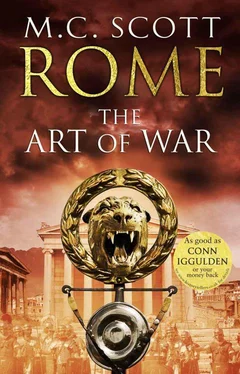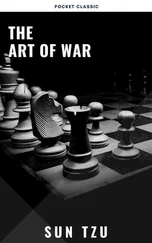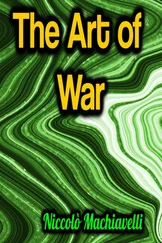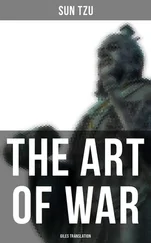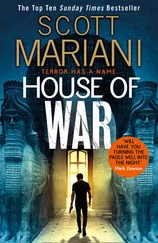M. Scott - The Art of War
Здесь есть возможность читать онлайн «M. Scott - The Art of War» весь текст электронной книги совершенно бесплатно (целиком полную версию без сокращений). В некоторых случаях можно слушать аудио, скачать через торрент в формате fb2 и присутствует краткое содержание. Жанр: Исторические приключения, на английском языке. Описание произведения, (предисловие) а так же отзывы посетителей доступны на портале библиотеки ЛибКат.
- Название:The Art of War
- Автор:
- Жанр:
- Год:неизвестен
- ISBN:нет данных
- Рейтинг книги:3 / 5. Голосов: 1
-
Избранное:Добавить в избранное
- Отзывы:
-
Ваша оценка:
- 60
- 1
- 2
- 3
- 4
- 5
The Art of War: краткое содержание, описание и аннотация
Предлагаем к чтению аннотацию, описание, краткое содержание или предисловие (зависит от того, что написал сам автор книги «The Art of War»). Если вы не нашли необходимую информацию о книге — напишите в комментариях, мы постараемся отыскать её.
The Art of War — читать онлайн бесплатно полную книгу (весь текст) целиком
Ниже представлен текст книги, разбитый по страницам. Система сохранения места последней прочитанной страницы, позволяет с удобством читать онлайн бесплатно книгу «The Art of War», без необходимости каждый раз заново искать на чём Вы остановились. Поставьте закладку, и сможете в любой момент перейти на страницу, на которой закончили чтение.
Интервал:
Закладка:
He stopped in the doorway and I watched him make the same assessment as me. Seneca always taught us it was best to stand in shadow, but if that was impossible, then to keep ourselves in bright light: each allows you the advantage of seeing before you are seen.
Pantera was of the shadows, I was of the light. That has been true all along. My feeling is that if you can’t be invisible, or don’t want to be, then you do everything you can to draw attention to yourself. That way, people see those things to which you guide their eyes, not the things that you wish to keep hidden.
With that in mind, knowing the importance of a first meeting, I was dressed in fine white linen, and my hair was bound up on top of my head. The three gold pins that adorned it bore butterflies jewelled in scarlet and amber, lapis and green. I wore no other jewels, nor any make-up; on walking into the room, his gaze and his attention were caught by the glitter of those pins.
Any normal man would have seen them first, and then the shape of my body beneath my shift. Later, when asked, he’d have said I was tall and dark-haired and wore gold pins with butterflies on my head. He would have described my figure in detail. If he was particularly attentive, he might have said that my shift was white.
Pantera was not a normal man. He glanced once at the pins and then his eyes stripped me from head to toe and back again. You might think that was nothing extraordinary, but the point is he wasn’t looking at my body, rather at what my shift might conceal, and when he was done he let his gaze rest on my face, on my eyes, whence danger might first be signalled.
He, too, had been asking around the city for information about me, and because I was… who I was I had been able to control what he had heard, and those bits I could not control I at least knew about.
He knew, therefore, that I was considered attractive, but was too wilful to be truly beautiful; that my brother was famous for his poetry but I believed myself the better writer and passed off my own work as his — that’s true, by the way; that I was a widow and childless, although nobody knew the cause of my husband’s death. Bloody flux, poison and a dagger in the night had each been mentioned, at which Pantera had remarked that any man would have to be particularly unlucky to fall foul of all three. None of his informants had laughed.
From another source, he had heard a whisper that I had been to the poison school set up by Nero after the death of Britannicus, and had been a willing and able pupil there. Another rumour said I was Nero’s mistress and that he was planning to marry me when I fell pregnant.
Nobody mentioned that I had been a pupil of Seneca’s, but that’s because so few people knew about Seneca’s spy network, and not even those who belonged to it knew the identities of their fellows. And nobody else in the world was privy to Seneca’s private code, which I had used when I summoned Pantera here.
So that was our first meeting.
I tried to read his face: puzzlement, curiosity, hope, discovery, anger… all were there, but it was the sense of a watching intellect that was arresting, and brought to mind what I had been told of him.
He is wounded, but he is still the Leopard, still dangerous. His eyes look through you, until they don’t. That’s when he’ll kill you.
Seneca used to say that to anyone who would listen and Pantera never took the time to contradict him. So I watched his eyes, watching mine, and I waited.
We both waited. Seneca taught all his students not to speak too early in any conversation, to let the other party make careless admissions on first greeting. Evidently, we had both been good students: the silence hugged us, gathering the scents of willow and running water, the sounds of birdsong; it did not break.
When it was clear that I must move first, I drew from my sleeve the scroll I had secreted there. It was sealed with undyed beeswax on which was pressed Seneca’s mark of the counting stick. I laid it on the farthest edge of the small cherrywood table that was the room’s only furniture, next to a lit candle in a plain silver stick.
I said, ‘He wrote this for you on the day he died.’
Naturally, Pantera expected it: why else would he have been called to Rome, to this house, at this time, if not to hear his mentor’s last request? But he opened the letter slowly, not sure, I think, that he was ready to read such a thing in my presence.
His relationship with Seneca had been complex, and although I believe the greatest rift had been healed soon after he returned from Britain, there must have been a lot that had never been spoken.
I watched him scan the first lines.
From Seneca to the son of his soul, with love, greeting s…
And so there it was, in black and white, the son of his soul. Pantera glanced up, wondering if I had read it, but I, of course, was looking out of the window at the stream, not at him.
I could hear his thoughts in my head as if he breathed them in my ear: I never loved him as he wanted, and hated him for wanting it. But he was Seneca; how could you truly hate him?
He didn’t speak aloud, just read on.
The handwriting was even and steady and unmistakably Seneca’s. Nobody, reading it, would have known that it was written in the maw of death; a final, dying plea. Two final pleas, actually.
I ask you to honour this woman as you honoured me.
It’s obvious now, of course, but it wasn’t then. Pantera was being asked to give to me the same loyalty he gave Seneca, to accept me as the new spymaster. Her name will be the Poet.
Seneca had been known to all of us as the Teacher and that name died with him. I chose the name Poet for myself and do not think it any more arrogant than his.
But for Pantera?
A woman, this woman: me. Not him. Spymaster.
Owner, commander, caregiver to the entire Senecan network.
He raised his head. I was trapped by his gaze. His eyes look through you, until they don’t…
Outside, small birds tussled over a nest. I wrested my gaze from his. I said, ‘He presumes much.’ I didn’t ask if it was too much.
Pantera laid the scroll down on the table, and placed his palms flat beside it. ‘He wanted to believe himself loved,’ he said. ‘And if not loved, then hated.’
If I had misunderstood him then, I have no doubt that Pantera would have left, and there was every chance that he would have taken the network with him. I knew he had planned for this moment and that he could have done it. Whether he would have destroyed it or run it for his own ends was a different question; I’m not certain even he knew the answer.
Uncertainty lit the air between us.
I said, ‘We all want that, don’t we? Not to be ignored? Not to be so insignificant that we are not even worth hating?’ I smoothed my stola and let him see that I carried a knife at my girdle, although in truth he had already seen it.
It’s not as if I expected him to be afraid. Or unarmed. But I wanted him to understand the same of me: that I was not afraid, nor unarmed; a match for all he had become.
I said, ‘It’s hard not to hate the man who uses you and would throw your life away on an instant did it suit his ends.’
‘Will you do the same?’ Pantera asked: will, not would. He was halfway to a decision.
‘Of course.’ I smiled, but it felt tight, and not convincing. I had worked for years to bring us to this point, and everything balanced on the blade’s edge. Control was all, for both of us. ‘You would do the same if Seneca had named you, not me. And you’d hate yourself for it daily, as he did and I will.’
Looking out of a window, I bit the edge of my thumb, carelessly. I was in profile, then, with the sun behind, and there are few spring fabrics that are not at least a little translucent.
Читать дальшеИнтервал:
Закладка:
Похожие книги на «The Art of War»
Представляем Вашему вниманию похожие книги на «The Art of War» списком для выбора. Мы отобрали схожую по названию и смыслу литературу в надежде предоставить читателям больше вариантов отыскать новые, интересные, ещё непрочитанные произведения.
Обсуждение, отзывы о книге «The Art of War» и просто собственные мнения читателей. Оставьте ваши комментарии, напишите, что Вы думаете о произведении, его смысле или главных героях. Укажите что конкретно понравилось, а что нет, и почему Вы так считаете.
